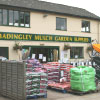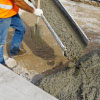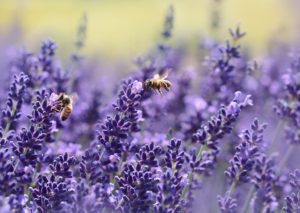Easily Create an Eco-Friendly Garden
With everyone trying to lower their carbon footprint and do their bit to slow global warming, creating a more environmentally-friendly garden has not only never been more important but has also never been easier.
Here, Madingley Mulch, supplier of high-quality bags of compost and bulk bark in Suffolk, Essex and Cambridge explores ways in which you can simply create a garden that is not just eco-friendly, but low-maintenance too.
Start a Compost Heap
Composting is really simple! It not only reduces rotting rubbish going into landfill but produces an excellent fertiliser for you to use on future flower beds and vegetable patches.
- Set up the area or corner in your garden where you want your compost pile to sit.
- Collect any organic waste from your cooking and meals that would otherwise have gone in the bin.
- Aim for an equal amount of ‘green’ and ‘brown’ waste to go onto the compost pile. Green waste is vegetables, fruit and other food which supplies nitrogen to the pile; brown waste is dry leaves, wood shavings and even newspaper, which are rich in carbon.
Mixing in one of our best-selling composts, such as Denise’s Delight or Tony’s Tonic to your own compost pile will help start the decomposition process and lets the produce break down quickly. Our exclusive blends include a mixture of Black Fen soil, well-rotten horse manure, humus, wood shavings and plant nutrients.
Remember, don’t compost dairy or animal products (including bones) as these will smell bad as they break down and inevitably attract pests and other unwanted wildlife. Also never try to compost fats, oils or pet waste as these will not break down effectively into the compost.
Turn your compost over every week or two, to help break it down and turn it to soil. Once well-rotted and suitably decayed, your compost can be used as a fantastic fertiliser for growing plants, including vegetables and flowers. The more vegetables you grow yourself, the less need you’ll have for buying food from supermarkets that has most likely been grown overseas and flown into our country, thus reducing your carbon footprint.
Conserve Water
Water conservation is essential, especially when the temperatures rise in the warmer months of the year. Installing water butts at the bottom of every downpipe of your guttering will ensure you have plenty of water to use on your garden if there’s a hosepipe ban when the summer reaches its peak.
If you have the space, consider an underground rain tank, but if you don’t have the space or budget for this, a large water butt or two will easily collect enough water for an average-sized garden.
Choose Local and/or Eco Materials
Natural materials sourced and made locally often feature strongly in eco-friendly gardens. Choosing these kinds of materials helps reduce your carbon footprint because they’ve travelled fewer miles to reach you and also support local businesses.
Local materials also give gardens a ‘sense of place’ by linking them to their local surroundings. For timber products, including decking, look for a Forest Stewardship Council (FSC) or Programme for the Endorsement of Forest Certification (PEFC) logo, to ensure the wood was responsibly and sustainably sourced.
Bee-Friendly
The worldwide bee population is decreasing at an alarming rate, so whether you only have a small patio or a large garden, growing a range of native, flowering plants can help local bees. Bees need plants which are rich in pollen and nectar to survive. Nectar contains sugar for energy and pollen contains the proteins and oils the bees need to form a balanced diet, so planting things like lavender, abelia, honeysuckle, ivy, lungwort, crocus, snowdrops and wild herbs like rosemary, chives and sage are all excellent for bees.
If you’re trying to create your own eco-friendly garden, visiting Madingley Mulch is a great place to start. We offer a huge range of eco-friendly garden supplies, including bags of compost and bulk bark for our customers in Suffolk, Essex, Cambridgeshire and Norfolk. Speak to one of our friendly team today on 01954 212144 or shop@mulch.co.uk to discuss your gardening requirements.
Back to blog




